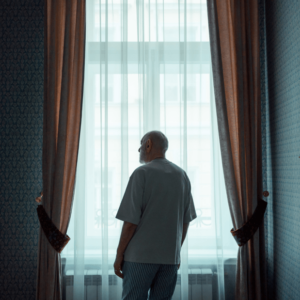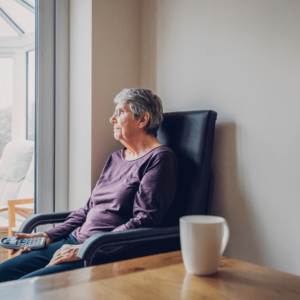According to the National Institute on Aging, nearly three in ten seniors live by themselves. Generally speaking, there is nothing wrong with this on the surface. Seniors are no different than the rest of us, after all, and most everyone enjoys their independence. That said, too much isolation can have a negative impact on both physical and mental wellness. For this reason, it’s important to maintain a degree of senior socialization.
What this looks like is dependent on the person and their interests. It could be a weekly game night, a standing dinner date, attending worship services—anything that gets seniors out and interacting with others.
Why Senior Socialization is so Important

“Humans are social creatures,” write Professors Parkhurst and Tarvin of Oberlin College & Conservatory. “We live in families, we work in teams, we envision duty and purpose through religious fellowship […] our norms are shaped by our culture, itself an emergent property of group-living.”
Regrettably, with aging comes an increased risk of isolation. Nearly half of seniors experience loneliness on a regular basis—unsurprising when you consider that they, more than any other age demographic, are the most likely to seclude themselves.
The risk of isolation only increases as seniors age and opportunities for social connections become less likely.
How Senior Isolation Affects Health and Wellness
Social isolation can have a profound effect on mood and mental health, as well as physical health. People who do not receive a healthy amount of socialization have a higher likelihood of developing other conditions, such as:
- Hypertension
- Coronary artery failure
- Cardiac failure
- Depression
- Anxiety
- Dementia, including Alzheimer’s
Likewise, individuals who suffer from social isolation are likely to develop unhealthy habits, such as poor diet, smoking, and physical inactivity.
Social Isolation Risk Factors
Limited contact with friends and family and chronic health conditions are two of the risk factors that can increase the risk of social isolation.
More alarmingly, social isolation can dramatically increase the risk of premature death, according to a recent CDC publication. The risks of social isolation may actually outpace those associated with smoking, obesity, and physical inactivity.
Senior Socialization and Mental Health Benefits

Mental health used to be a thing that people didn’t talk about. Over the last few decades, though, there has been an increased social and educational awareness placed on the impact of mental wellness and how it informs physical and overall health.
And as such, the link between physical and mental health is tangible. Seniors who report symptoms of depression can experience physical deterioration, including a worsening of chronic illness or disability. As we’ve discussed already, this can shorten life expectancy and place stress on the families of seniors as well as seniors themselves.
In the same way, improving mental wellness can have a profound impact on physical wellness. Socialization is associated with improved cognition, mood, and memory. There is even a corresponding correlation with the resumption or increase of healthy habits. Seniors can remain in contact through the internet, or in in-person social groups, and take part in activities that keep them engaged and connected.
How Retirement Communities Help Fight Social Isolation
The need retirement communities fill is multi-faceted, but one of the most crucial functions is providing the opportunity for retirees and seniors to connect with one another. Through a slew of activities, both structured and self-guided, community members can remain engaged for years.

Retirees and seniors by definition have more time on their hands than their family members or friends who are still putting in forty hours or more a week. Even seniors living with a partner need a degree of socialization that involves people outside of their household.
Senior living communities help keep people active with organized programs, events, outings, accessibility to game rooms and groups, routine social gatherings, and other amenities, all of which do not require commuting or come at an additional expense. This structure is baked into the nature of the community itself.
About The Preston
The Preston is a retirement/senior living community designed to cater not only to the needs of seniors and retirees but also allow room to remain socially active. As a 55+ community, senior socialization support is at the core of everything we do.
If you’re curious about any of the activities, games, or events that will keep you or a loved one social well beyond retirement, reach out to us to schedule a tour.
